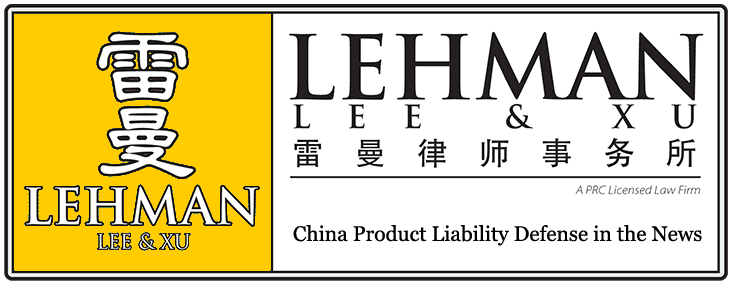In 2008, milk powder produced by the Sanlu Group in China was found to be adulterated with melamine, a chemical used in making plastics, mixed into dairy products in order to boost apparent protein contents. The Sanlu scandal sparked a national inquiry which resulted in melamine being found in dairy products from 21 other companies operating in China. Since that crisis, Chinese consumers remain wary of domestic dairy products. More affluent Chinese consumers turn to non-Chinese dairy products priced at a premium. Indeed, China is the world's largest dairy importing country, with Australia and New Zealand accounting for more than half of China's dairy imports. More recently, Western Australia exporters have signed an agreement with Chinese companies from Zhejiang to begin trial shipments of cattle. Whilst the Chinese market represents tremendous growth opportunities, non China-based food producers and/or manufacturers exporting to China, including Australian dairy producers and cattle farmers, should be aware of the sort of product liability exposures they may face.
Chinese product liability framework1
The Product Quality Law of the PRC (Product Quality Law) and the Law of the People's Republic of China on Protection of Consumer Rights and Interest (Consumer Protection Law) form the fundamental product liability framework in China.
Chapter III of the Product Quality Law requires a producer to ensure that their products do not threaten the health or safety of human life and property, possess the properties and functions the products claim to possess, and conform to the product standards claimed on the packaging. Under the Product Quality Law, a seller is obliged not to sell defective products, not to mix impurities into a product and to practise a check-for-acceptance system when taking delivery of any goods.
The Consumer Protection Law requires a business operator to promptly report any health-threatening defects of a product to the authorities and to take a range of measures including product recall at their own expense. Further, the relevant seller or producer is presumed to be liable for the defect unless it proves otherwise.
Since 2008, the Chinese government has passed legislation to afford consumers in China greater protection of their rights and interests. The first of such major laws is the Food Safety Law of the PRC (Food Safety Law), introduced in 2009. Key violations of the Food Safety Law include the adding of substances that are hazardous to health, the production or trading of foods with pathogenic microorganisms and the trading in the meat of any animals which died from illness, poisoning or unidentified causes. On 10 October 2013, draft amendments to the Food Safety Law were released. These draft amendments propose stronger regulations, harsher punishments and increased financial penalties. At this stage, it has not been announced when these draft amendments will come into force.
The Tort Law of the PRC (Tort Liability Law) was introduced in 2010. The Tort Liability Law provided China's first unified tort law framework. In broad terms, any party in the supply chain, ranging from the manufacturer to the retailer, could be exposed to tort liability. Any tort liability shall not be prejudiced by any other administrative and/or criminal liability arising from the same conduct.
The above provides only a starting point and does not contain an exhaustive list of all legislative and regulatory standards that may be applicable to a specific line of business. For instance, all toys sold in China have to conform to the National Safety Technical Code for Toys (GB 6675-2003). Further, food additives are only allowed to be used in China if they comply with the Food Safety Standards for the Usage of Food Additives (GB 2760-2011).
Penalties under the Chinese product liability regime
Under the Product Quality Law, where a defective product threatens the health of human life or where impurities have been mixed, the producer or seller shall be liable for compensation, depending on whose fault has caused the defect. A fine of between two to five times the illegal proceeds shall be imposed on the offender(s) and the offenders' business licence may also be revoked. The legislation is silent as to whether illegal proceeds mean revenue or profit, and the Supreme People's Court (SPC) has yet to issue an official clarification. However, it is not unlikely that illegal proceeds would be taken to mean revenue.
Under the Food Safety Law, a consumer who has suffered personal injury may seek liquidated damages of up to 10 times the product price from either the relevant producer or seller who knowingly failed to conform to food safety standards. Under the 2013 draft amendments, a consumer would also have the additional option of seeking three times the losses suffered, with the total damages to be awarded set at a minimum of RMB 1,000 with no limit on the maximum awardable damages. Under the draft amendments, any revenue obtained shall be confiscated, and should the value of foods in illegal production or trading be more than RMB 10,000, a fine of between five to 10 times the value of the goods shall be imposed. Further, should the Department of Food Safety Supervision consider it to be a 'serious offence', the relevant licences will be revoked and criminal liabilities pursued.
Under the Tort Liability Law, compensation may be awarded to the victim where a manufacturer or a seller knowingly manufactured or sold a defective product.2 The latest official recommendation released by the SPC in 2013 indicates that death compensation should be 20 times the average annual average earnings in the deceased's locality. With regard to personal injury compensation, the SPC recommends that it shall be in accordance with the degree of loss of capacity, and the average living expenses in plaintiff's locality.
Under the Consumer Protection Law, where there are no illegal proceeds, a fine of up to RMB 500,000 will be imposed on violating business operators. Where illegal proceeds are involved, a fine of between one to 10 times the value of the illegal proceeds will be imposed. Again, the legislation is silent as to whether illegal proceeds mean revenue or profit and there is no official clarification on this point from the SPC yet.
http://www.lexology.com/library/detail.aspx?g=58336d8e-9955-4216-b54b-d72a5d75c9da |


